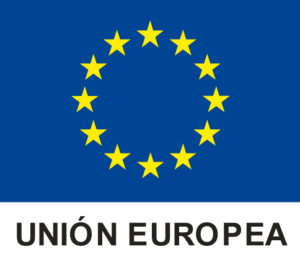El Partner Estratégico y Tecnológico para tu Alojamiento
4 soluciones enfocadas a que tu hotel o apartamento sea dueño de su comercialización, potenciando la venta directa, ahorrando costes y maximizando la rentabilidad.
Estrategia a medida para incrementar tu valor y tus ventas
Revenue Management
Más reservas y más beneficios con una solución basada en los datos y las decisiones inteligentes.
Vende más y convierte más reservas con tus clientes indecisos
Contact Center
Hasta un 85% de conversión: incrementa tus ventas, fideliza a tus huéspedes y mejora la comunicación con clientes indecisos.
Venta online a la vanguardia del mercado
Web Booking Sales
Una solución omnicanal para mejorar tus ventas: motor de reservas, diseño web y marketing online adaptado.
Más conversación, más conversión
Social Marketing
¡Conversaciones que venden! Crea comunidades en tus redes sociales, aumenta tu visibilidad online y consigue más reservas.
4
SOLUCIONES
Un servicio omnicanal y de vanguardia, que combina tecnología e innovación con el criterio profesional de nuestro equipo
Incrementa la venta directa de tu hotel, reduce costes de intermediarios, aumenta tu rentabilidad y fideliza a tus huéspedes a través de cuatro soluciones muy eficientes.
SOLUCIONES CLAVE PARA MEJORAR EL RENDIMIENTO DE TU ALOJAMIENTO
Contact
Center
Convierte más y fideliza más con una solución omnicanal. Un servicio 24 horas con capacidad para atender llamadas en 9 idiomas diferentes.
Web Booking
Sales
Genera más reservas a través de tu página web. Combina un diseño orientado a experiencia de usuario, un Motor de Reservas desarrollado por nuestro equipo que se adapta a todas las necesidades y una estrategia global de marketing digital.
Revenue
Management
Estrategia y venta para que tu alojamiento sea más rentable. Define precios, canales de venta y oportunidades de negocio con tecnología adaptada a las necesidades del mercado y el criterio de nuestros expertos.
Social
Marketing
¡Mucho más que likes y seguidores! Te ayudamos a generar leads con estrategias a medida, orientadas a tus redes sociales y portales de opinión. Detectamos las oportunidades, generamos conversación y fidelizamos a los huéspedes.
¿TU HOTEL NECESITA SOLUCIONES EFICIENTES?
Somos tu equipo, tu aliado para incrementar ventas y tus asesores expertos en mejorar la presencia de tu hotel en los diferentes canales de venta. Los thinkINers, combinamos el conocimiento y experiencia de nuestros expertos en el sector con la información que nos brinda la tecnología más avanzada: para que los logros de tu negocio sean también los nuestros. ¿Estás preparado para hacer que tu alojamiento sea más rentable?
Actúa, thinkIN
LO ÚLTIMO EN NUESTRO BLOG
NUESTROS PARTNERS






























